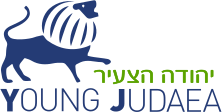Category: Alumni

YJ Statement on Israel
As we are all following the unfolding events in Israel with much concern and solidarity, we feel that we can no longer sit on the sidelines as observers but that we must fully and unequivocally voice our concern and articulate our position in alignment with Young Judaea’s core values.
Israel is our place, and now, more than ever, our Israeli chaverim must hear that we are standing along side them in solidarity and mutual concern.
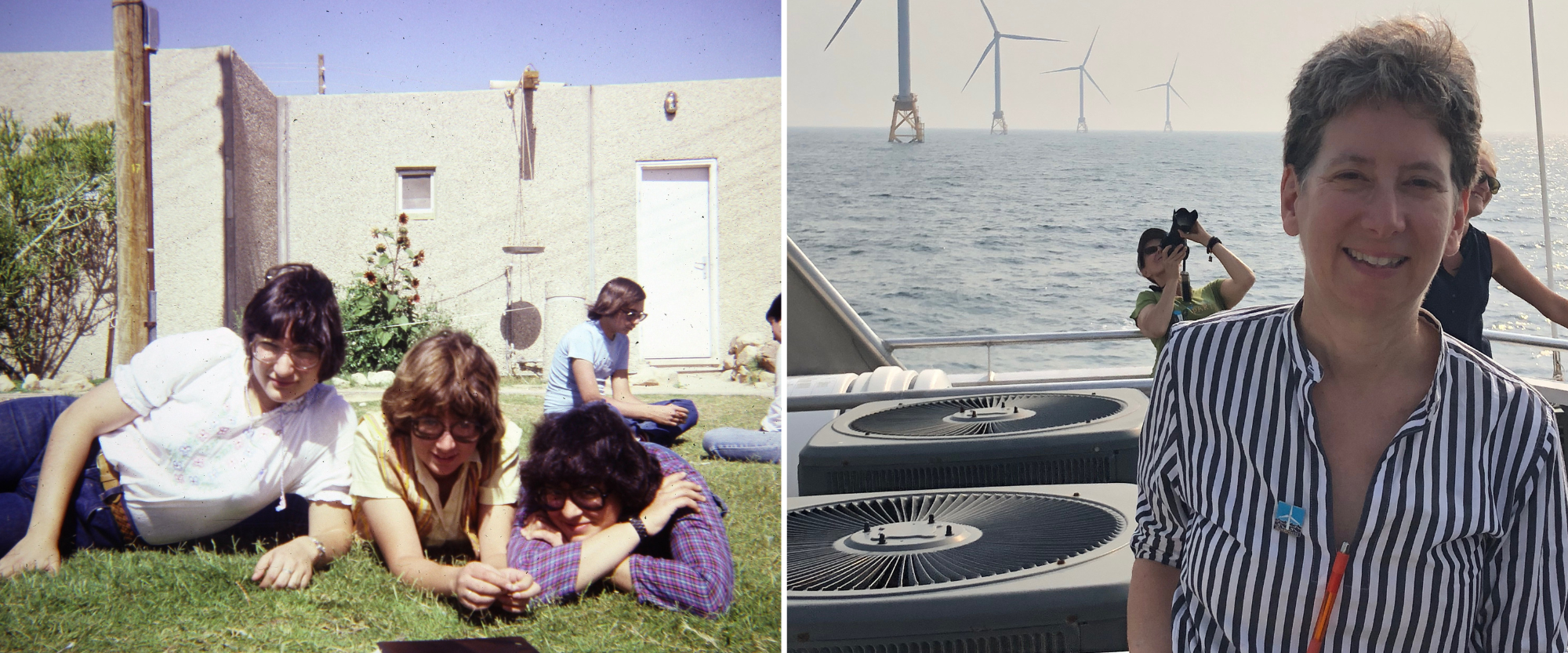
Judaean Turned Climate Activist
An interview with Mirele Goldsmith, founding member of the Jewish Earth Alliance
Tell is a bit about your background professionally and personally, including what Young Judaea programs you are an alumnus of?
I’m originally from Brookline, MA and joined Young Judaea as a freshman in high school. The region had decided to start a club in Brookline and I was recruited with a few other people to help. I went to Tel Yehudah for the Machon, and went to Israel on the Machon L’Madrichei Chutz La’Aretz (Year Course 1978). I also worked for hamagshimim.
I received my MSW in social work and spent a year doing field work in Tel Aviv. I’ve worked for a number of Jewish organizations including Hillel.
What inspired you to get involved in environmental causes?
In 1997 I went to Yosemite National Park for a wedding, and we went on the most popular day hike Vernal Falls. At the top of the mountain I saw something that changed my life: a solar compositing toilet. I found it to be a very interesting technology. There was a whole sign explaining how it worked and because of that toilet, I got involved in environmental issues.
After that I moved to New York and got involved with various environmental organizations and eventually went back to school to get my PHD in Environmental Psychology at City University of New York. My research was related to NYC water issues and making the water system more sustainable. I started to get involved in grassroots activism to ban fracking in New York State.
At the time the Jewish environmental world was growing and I became involved with COEJL and Hazon and was part of the Jewish organization of the People’s Climate March in 2014.
It was at this time that became more interested in advocacy. Everything we were doing, it all depends on policy and what kind of policies are passed. When I was with Hazon’s Jewish Greening Fellowship they developed a group buying program for solar rooftop systems for Jewish Agencies and New York City had recently passed a law about community solar. We couldn’t have done this without that law.
How did the Jewish Earth Alliance get started?
After relocating to the D.C. area from New York, I found some like-minded people to start the Jewish Earth Alliance – a grassroots, all-volunteer network that calls on congress for climate action. We try to make it easy for Jewish communities around the country to lobby the federal government and administration for climate solutions.
We recently had a webinar to prepare activists for the new congress and had 300 people attend! This event is leading up to a Tu BiShvat virtual lobby day we are organizing.
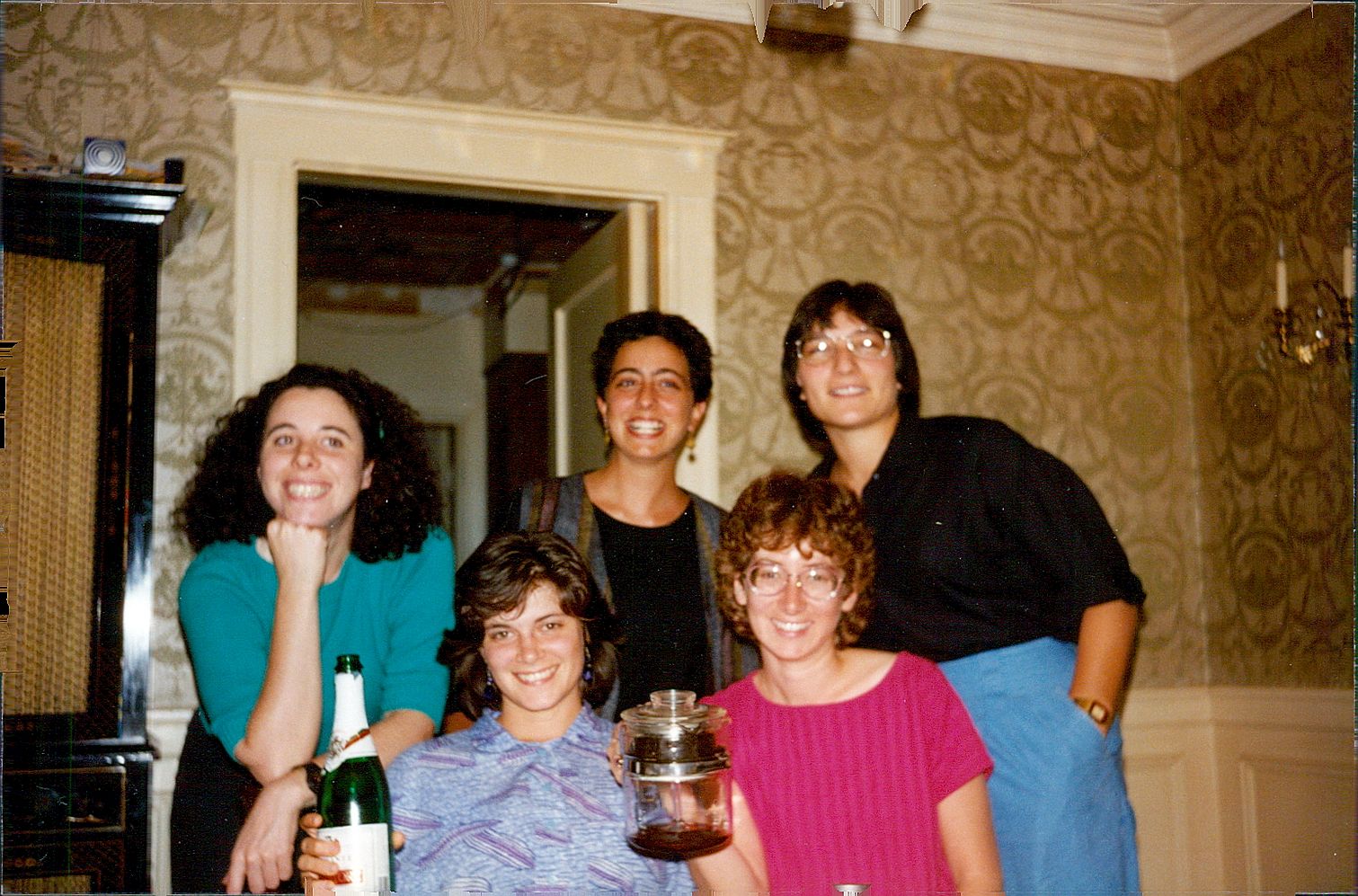
How did Young Judaea lead you to where you are today?
I always tell everyone that my start as an organizer came from Young Judaea. I give a lot of credit to Young Judaea for my ability to be an organizer and to lead.
Young Judaea was the first time in my life when I found friends who cared about what I cared about. We did things with each other and you build relationships through experiences. I mean, going to Israel for a year, back in those days you didn’t call home. Your friends were everything.
I do attribute a bit of my interest in the environment to Young Judaea. I was not an outdoorsy person before I went to Israel, going to Israel we spent a lot of time outside, hiking and those things, learning about geology and the agriculture of Israel. Looking back on it, it did influence me.
Why are you specifically a Jewish climate activist?
3 reasons
- I was raised as a Jew and my beliefs and values come from Judaism, and I feel like I need to act on them. It’s not enough to just talk about protecting the earth. A lot of our holidays connect to nature and appreciation and awe for creation. We need to act on those values.
2. A lot of our holidays and rituals relate to nature and that makes it really meaningful for people to learn about environment and take action in the context of Jewish tradition. Lobbying on Tu BiShvat is something people can relate to.
3. We just need everyone. There is a slogan in the climate movement, “to change everything we need everyone” and, we need the Jews too. It’s much easier to organize people in groups and communities than to do it one by one.
What can young people do today to get involved in environmental causes and climate activism?

There are many ways that you can get involved but the main thing is to find a place where you feel comfortable and feel like you can make a difference. My work with Jewish Earth Alliance is about activating citizens, we are citizen lobbyists. You don’t have to be paid to be involved and make a difference.
Be Courageous. Another thing we learned from Young Judaea. Our motto was ‘Ani ve’ata neshaneh et haolam’, you and I will change the world. I wasn’t that courageous when I was younger, but over time I realized I can be. Fortunately in both America and Israel we can speak up, we can make a difference, we should take advantage of that.
There are so many things we can do as citizens that seem very intimidating, but the main thing is to find like-minded people, join a group, and get involved. Because it’ all about how we can change the world together.

A New Sense of Purpose
As told by Teddy Fischer, YJ Alum
I started working with Member of Knesset, and former Judaean Alon Tal, because I was looking for a sense of purpose.
That’s not to say my life isn’t full – in fact, my life is packed full of meaning. I have an amazing wife and two precocious small children. I have a very meaningful and full-time job as an engineer helping bring Israel its first underground light rail. However, I felt that something was missing.

What was missing? When I made Aliyah more than 10 years ago, I served in the Air Force as a lone soldier. Every morning when I put on my uniform, I felt a sense of purpose and service. Even when doing menial tasks like guard duty, I felt that I was there for a greater purpose.
That sense of purpose was there when I was active in Young Judaea – as a high schooler, camper, teen leader, camp counselor and youth advisor. I was part of a group of like-minded people who were making a difference. One of the things I always loved about Young Judaea is that it is a movement and not just another youth group. A movement implies moving towards a goal. A movement is something dynamic and constantly changing. A movement has a purpose.
I first met Alon Tal in Israel a few years ago through a friend from Year Course before he became the first Young Judaean to serve in the Knesset. When the opportunity arose to work with him, I knew it was something I had to do.
In my time with Alon, I have taken on coordination, outreach, and constituent services for English speakers in Israel and around the world. This includes, progressive (Conservative, Reform) Jews, olim in Israel, environmentalists from around the world and anyone who cares about Israel-Diaspora relations.
We have started an English language newsletter, launched a website, and initiated a series of Zoom talks – all in the interest of being open and transparent and trying to create a dialogue with these groups we seek to represent and speak for in Israel.
Though I did not know Alon well prior to working with him, we instantly hit it off. Part of that, was our shared background as American olim in Israel with a similar past – of which Young Judaea is a big part. Though we are separated by a generation, and though we both ‘graduated’ from the movement a long time ago, many of both of our friends and colleagues to this day are people from Young Judaea. Maybe it’s because we kept in touch with our YJ friends, or maybe they were a network for both of us when we made Aliyah, or maybe because so many former Judaeans are leaders in Jewish and environmental movements in the US and in Israel, but barely a day goes by that Alon, or I aren’t in touch with a former Judaean.
For me, that purpose I was looking for is a feeling of selflessness. It is doing something for a greater good, purely for the sake of doing something you believe in (and not for a paycheck or even personal fulfillment or advancement).
Working with Alon Tal I have found that same sense of purpose that I felt as a Young Judaean, fighting together with another Judaean who has risen high, for causes I believe in: the environment, progressive Judaism, Zionism, improved Israel-Diaspora relations, and maybe even peace.
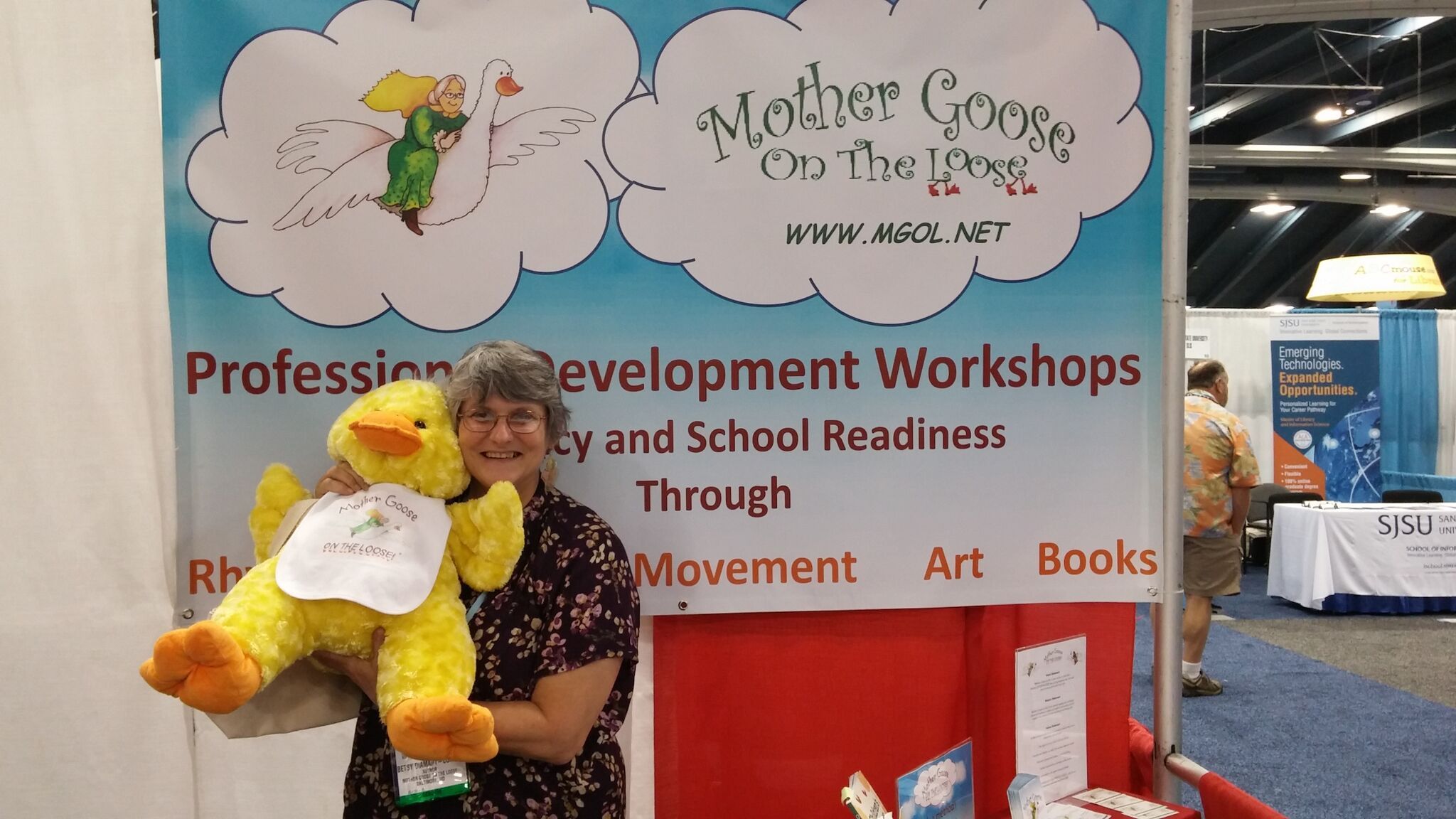
A National Children’s Program with YJ Roots
By Betsy Diamant-Cohen
Belonging to Young Judaea was instrumental in giving me the tools I use every day.
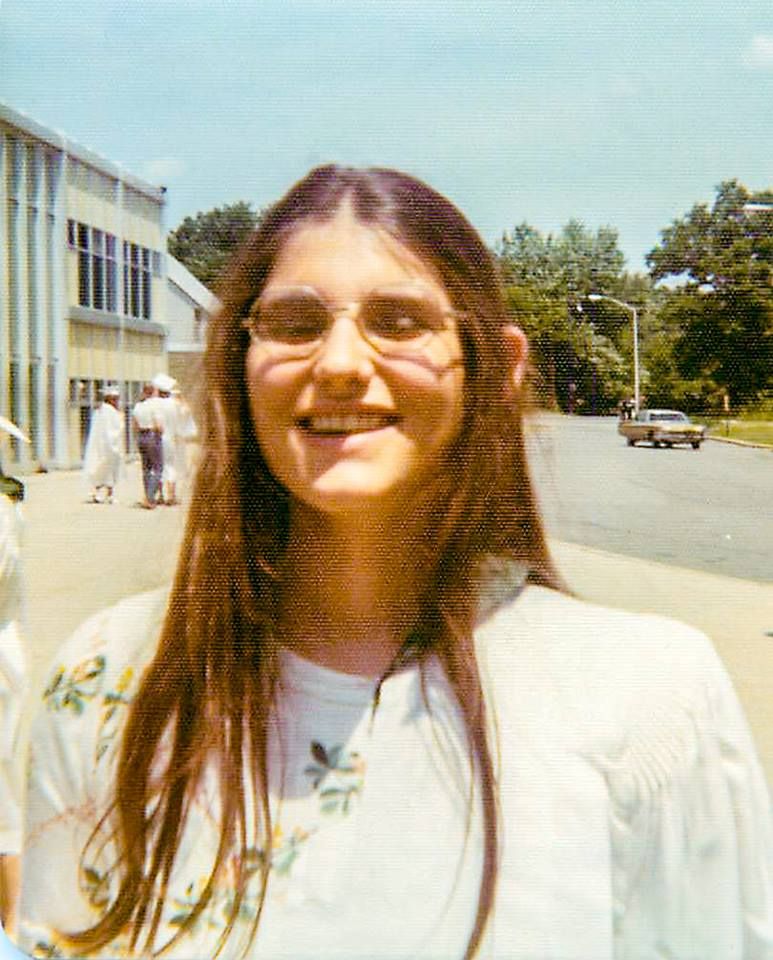 In Jr. High School, each organization gave a little pitch for membership, and I chose to join Young Judaea. After two years in Tsofim, I joined Bogrim. My good friend Joe Pomper told me that the nearby town of Westport, Connecticut was going to be starting a YJ club for Tsofim and were looking for a madricha and asked if I would take the job. Without stopping to think about the fact that I was only one year older than the kids I would be leading, I agreed. For two years, I met regularly with our Senior Advisor, Judy Targan, to plan out the programs. Since I couldn’t yet drive, I’d take the Sunday morning train to Westport and a woman from Hadassah would transport me to whichever child’s home was hosting the meeting that day. Through leading the club, I learned techniques for getting people’s attention such as pausing and speaking more softly rather than trying to shout loudly, and clapping to a rhyme and starting a song which brought people together and directed their attention without needing to say a word.
In Jr. High School, each organization gave a little pitch for membership, and I chose to join Young Judaea. After two years in Tsofim, I joined Bogrim. My good friend Joe Pomper told me that the nearby town of Westport, Connecticut was going to be starting a YJ club for Tsofim and were looking for a madricha and asked if I would take the job. Without stopping to think about the fact that I was only one year older than the kids I would be leading, I agreed. For two years, I met regularly with our Senior Advisor, Judy Targan, to plan out the programs. Since I couldn’t yet drive, I’d take the Sunday morning train to Westport and a woman from Hadassah would transport me to whichever child’s home was hosting the meeting that day. Through leading the club, I learned techniques for getting people’s attention such as pausing and speaking more softly rather than trying to shout loudly, and clapping to a rhyme and starting a song which brought people together and directed their attention without needing to say a word.
Becoming more active in the movement in high school meant programming on a local level. Israeli folk-dancing and singing Hebrew songs were all part of the club’s weekly meetings; we had over 70 members in the Stamford Club! I learned how to teach songs and dances and how to speak in front of a crowd without self-consciousness.
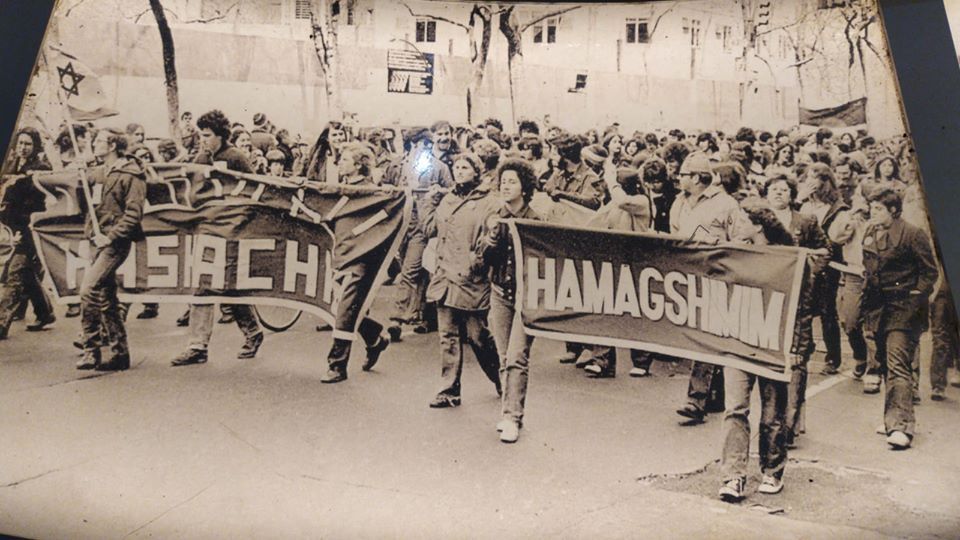
These skills came in handy when I was elected National President / Mazkira in 1974, and was given the incredible opportunity of field-tripping regions across the US. Concepts of peer leadership as expressed eloquently by Elana Paru in her article about supervision, the creed “enthusiasm breeds enthusiasm,” the desire to make the world a better place, and the belief that everyone’s contribution – no matter how small – makes a difference, became part of my soul.
After attending Year Course in 1975-76, I edited the Hamagshimim journal for a year or two and led YJ clubs in the Boston Area while studying at Brandeis. I studied library science and began work as a children’s librarian. In 1986, I made Aliyah, and shortly after I arrived in Israel I began working at the Youth Wing of the Israel Museum as their English Language librarian where I offered weekly preschool story times in English through a volunteer organization called JELLY (Jerusalem English Language Libraries for Youth).
In 1988 my son was born and I attended a music class with Canadian music educator, Barbara Cass-Beggs. Her class, “Your Baby Needs Music” was so wonderful that I continued to study with Barbara until I became a certified instructor using her “Listen, Like, Learn” approach. Since story time at the Museum was for 3-5 year-olds, I combined what I had learned from Barbara with what I already knew about sharing books with young children, and developed a 30 minute program called “Mother Goose on the Loose” (MGOL) for parents with babies from birth to age 3. MGOL programs ran weekly in the Young Wing library up until I moved back to the US in 1998.
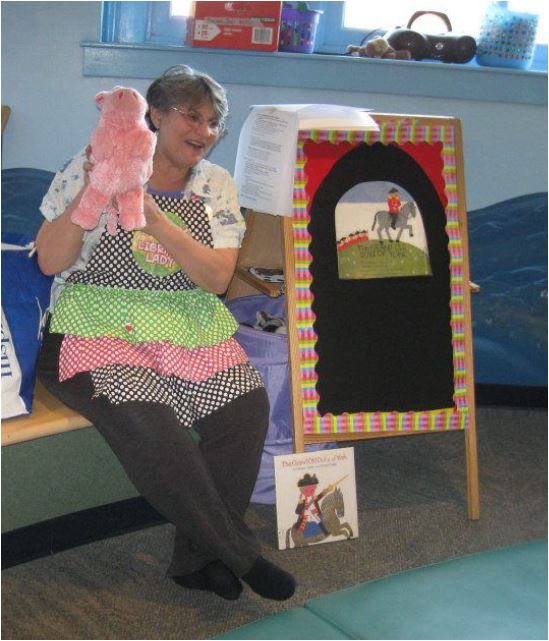 During a job interview at the Enoch Pratt Free Library in Baltimore, I asked if I could present Mother Goose on the Loose programs. The interviewer told me that recently published brain research showed that the architecture of the brain is built in the first few years of life, and that early experiences are important for influencing a child’s successful future. Not only could I do MGOL programs, but I was encouraged to start doing them as soon as possible. The need was great since programming for children under age three in the public library world at that time was rare and library directors were anxious to offer programs that parents wanted. Most librarians did not know what to do when directors told them to start programming for infants and toddlers; library literature on programming for babies was scant, and Google was not fully developed so searching online was not an obvious option.
During a job interview at the Enoch Pratt Free Library in Baltimore, I asked if I could present Mother Goose on the Loose programs. The interviewer told me that recently published brain research showed that the architecture of the brain is built in the first few years of life, and that early experiences are important for influencing a child’s successful future. Not only could I do MGOL programs, but I was encouraged to start doing them as soon as possible. The need was great since programming for children under age three in the public library world at that time was rare and library directors were anxious to offer programs that parents wanted. Most librarians did not know what to do when directors told them to start programming for infants and toddlers; library literature on programming for babies was scant, and Google was not fully developed so searching online was not an obvious option.
Since MGOL was a time-tested program, I presented at a local library conference and wrote an article about it in a national library journal. Library systems from around the country began asking me to come out and train their children’s librarians. Each of my workshops started with the story of Mother Goose on the Loose’s origins, explaining that MGOL originated from the Youth Wing of the Israel Museum with a 30-minute weekly nursery rhyme program for an audience of Jews, Muslims, Christians, people of the Bahai faith, and others. Because we were all singing together and clapping for each other’s children, a magical sense of community was formed. To this day, the same sense of community grows wherever MGOL is offered.
Because of my time in Young Judaea, I was comfortable presenting about MGOL to large crowds, telling stories, explaining how to teach songs, and using enthusiasm to breed enthusiasm.
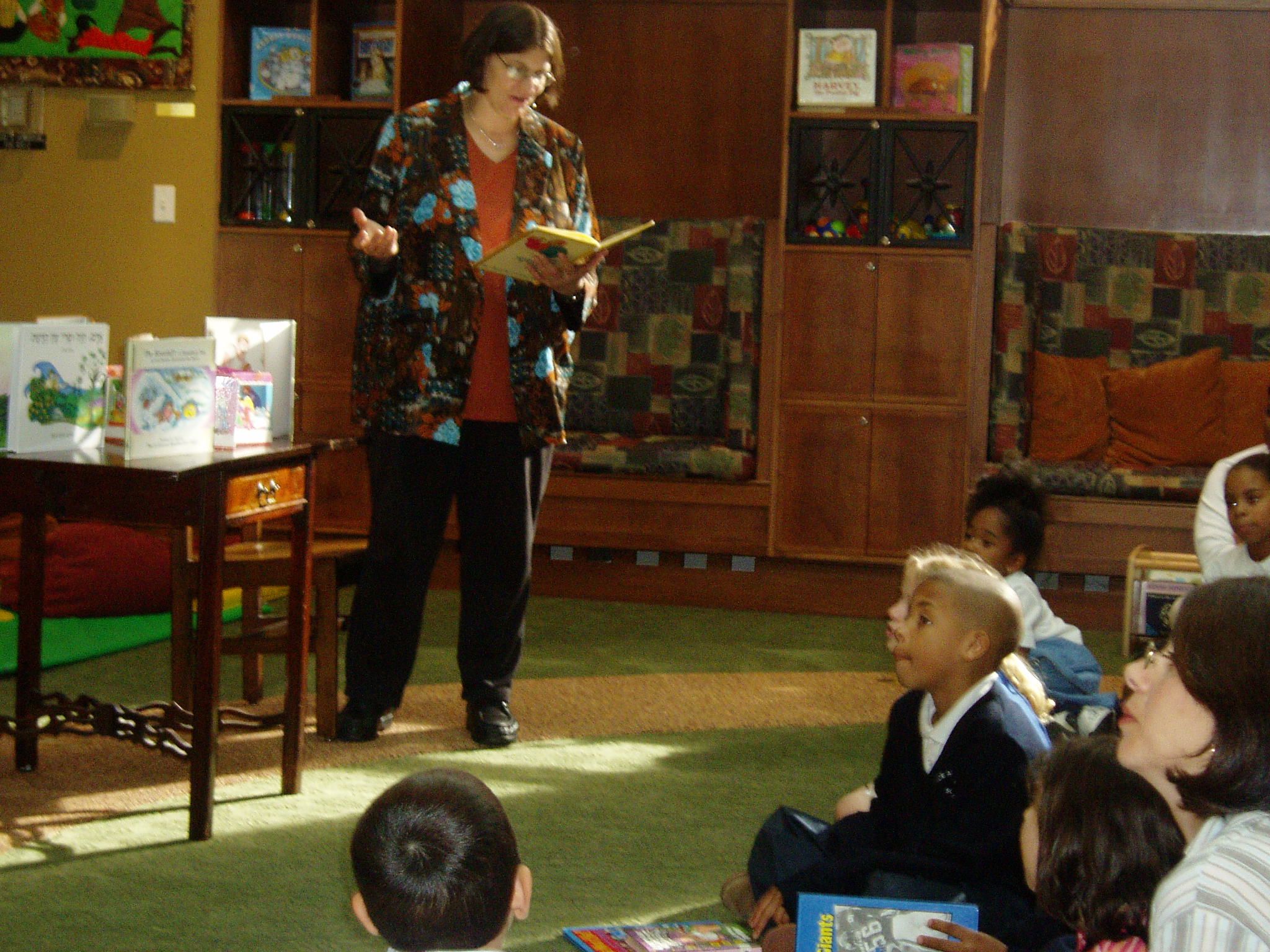
So my workshops went smoothly and Mother Goose on the Loose spread. (I also loved being able to talk about Israel and present it in a positive light – especially when I was in areas where people had not met any Jews in person before.) MGOL won a national award in 2002, I won an award because of MGOL in 2004 and a publisher asked me to write a book about it. Eventually, MGOL became so popular that I left my salaried job at the public library and formed Mother Goose on the Loose, LLC. I now earn my living by providing trainings, workshops, webinars, and online classes. I often present at conferences and occasionally give keynotes. I’ve had 9 books published (how-to manuals for librarians.)
I credit Young Judaea for giving me the courage to tackle new situations and meet new people with confidence, to share my ideas with others and to listen carefully when they are sharing their ideas with me.
Because of the respect given to the ideas of others, fruitful partnerships have enabled MGOL to expand and be adapted for use in hospitals, laundromats, WIC centers, prisons, homeless shelters, elementary schools, synagogues, churches, and more. Now that I’ve had have plenty of time to learn about the research behind early childhood development, I do believe that giving children a strong start in the early years can set up the framework for their success. I am grateful that Mother Goose on the Loose has been able to have a positive impact on so many people, and I am grateful to Young Judaea for giving me the exact tools needed to bring Mother Goose on the Loose this far.
Last month, the Association for Library Service to Children (ALSC) named me as the recipient of their 2022 Distinguished Service Award. This is a huge honor; ALSC is the world’s largest organization dedicated to the support and enhancement of library service to children. Although I did not become a Jewish Professional, I am certainly have used all of my Young Judaea skills to help make the world a better place.

Supervision Matters
By Elana Paru
With tremendous gratitude for my active involvement in Young Judaea many years ago, I wanted to share this piece I wrote for the Wexner Foundation about why Supervision Matters so much in the workplace. My experiences as a madricha at CYJ Sprout Lake and as a merakezet at CYJ Texas over 30 years ago helped shape my professional path. Young Judaea taught me the importance of using my leadership skills and authority to invest in others. Thanks to my family and extraordinary YJ role models, madrichim, and friends, I have devoted my career to treating people with compassion, integrity, and respect and leading with kindness and transparency.
https://www.wexnerfoundation.org/supervision-matters/
After working as a professional in Jewish organizations for over 26 years, I have rarely come across an organization that has created and upheld a healthy and clearly defined culture of and standards for professional supervision across the entire staff and workplace.
Why is that?
The main reason is that supervision is commonly understood as one person with greater authority making sure that someone else has completed specific assignments and projects efficiently and in a timely manner. While this is certainly one important role that supervisors play, the process of supervision is so much more than task management and operations. Supervision is about developing a professional, collaborative relationship in which both parties share responsibility and feel accountable to one another as they both strive to meet the goals of their organization. Supervision is a skill and a craft – one’s title, salary, and professional portfolio do not automatically or universally make someone an effective supervisor.
So what does it take to be an effective supervisor? Among other things, supervisors should articulate expectations, goals, available resources, and provide direction and guidance to direct reports, who then apply knowledge, skills, and competency to complete the work. The most productive supervisory relationships are built on trust, confidentiality, support, constructive feedback, respect, safety, and self-care. Effective supervision is critical for employee retention, career advancement, productivity, and positive morale at work.
Interestingly, the most valuable supervision training I ever received took place years before I officially launched my career and accepted my first full-time job. The most rewarding culture of supervision I have been a part of was when I worked as a camp counselor and unit head for several summers during high school and college. As a part of staff orientation, I was asked to think about who I wanted to be as a camp counselor and how I wanted to “show up” for my campers. I had to make sure that my campers were fulfilling their responsibilities like making their beds, participating in activities, washing their hair, writing letters home, being respectful of others, and keeping track of their belongings. I had to find ways to hold them accountable for their actions and at the same time I had to let them be independent and express themselves authentically.
Just as professional supervisors engage with their direct reports, I was expected to get to know my campers by listening to them, caring about their well-being, helping them feel a sense of belonging, and encouraging them to be the best version of themselves. I focused on their interests, strengths, challenges, fears, accomplishments, goals, and interactions. When campers were asked to do something that was out of their comfort zone or made them feel insecure, I would guide them to try new things, ask for help, and believe in themselves. I felt responsible for making sure that my campers understood that putting forth their best effort was expected even though they would still make mistakes, let people down, and feel disappointed sometimes. My job was not to make things easier or more difficult for my campers, but rather to help them approach whatever they confronted with an open mind, fresh perspective, and a strong sense of self.
My role as a camp counselor was not only to help my campers effectively contribute to the camp community, but I was also positioned to serve as their advocate. I introduced them to new people beyond our bunk and age group, I recommended them for special opportunities at camp, and I supported them whenever I could. Just like a supervisor, there were challenging times when after multiple attempts to help a camper thrive and fit in and adhere to camp policies, I had to work with the camper’s parents and other staff to accept the fact that our camp was not the right fit for that child at that time. Being responsible for other people is challenging no matter where you work. But as I have learned, it can also be the most rewarding aspect of one’s job.
There is no doubt that effective supervision requires a lot of time at the start. However, designing a plan to thoughtfully supervise staff is crucial for the employee to succeed and is a direct reflection of the supervisor and the organization as a whole. Setting up direct reports for success from the outset most often results in a huge return on investment.
Over the last several years I have trained clergy, senior executives, and managers on how to be effective supervisors. I have also had the good fortune of training direct reports on how to maximize supervision experiences, how to establish strong relationships with supervisors, and how to navigate difficult conversations. Supervisees are often surprised to learn that they are empowered to drive the process to ensure an optimal supervision experience.
In addition to these distinct responsibilities of supervisors and supervisees, there are a number of joint responsibilities in supervisory relationships, including celebrating successes, identifying growth opportunities, documenting accomplishments, and sharing important information with one another. It is critical for supervisors and direct reports to establish guidelines for clear and open communication and to be strategic about how and when to share constructive feedback with one another.
In the current climate of remote work as a result of the Covid-19 pandemic, it is even more important for supervisors and direct reports to be transparent, direct, and communicative with one another. The absence of regular in-person interactions and hands-on supervision can be more challenging for everyone. It is particularly important for direct reports to be proactive in seeking information, understanding and managing expectations, and checking in with supervisors to ensure alignment. Both direct reports and supervisors should be careful not to act on assumptions, but rather on facts and truths. This may require more frequent and intentional communication than usual because there are no casual opportunities to run into someone’s office to get a quick reaction to something or an answer to a question. Over the past two years, I have seen many supervisory relationships shift in positive ways by creating a safe space for employees to honestly share how they are feeling and to be encouraged to take care of themselves. The more an employee feels seen, heard, and cared for by one’s supervisor and organization as a whole, the more likely that employee is to maximize value, performance, and overall impact at work.
What I learned at camp over 30 years ago continues to shape my thinking around supervisory relationships. It is no surprise that many of my friends and colleagues were once my counselors, camp directors, bunkmates, and campers. Supervision is not just a task but rather an opportunity to invest in someone’s growth and professional journey while ensuring that the work is getting done and organizational goals are being met. I am committed to helping organizations understand the value and impact of effective supervision and to embed it as a central component of their workplace culture. When this happens well, everyone involved is primed to be a happy camper.
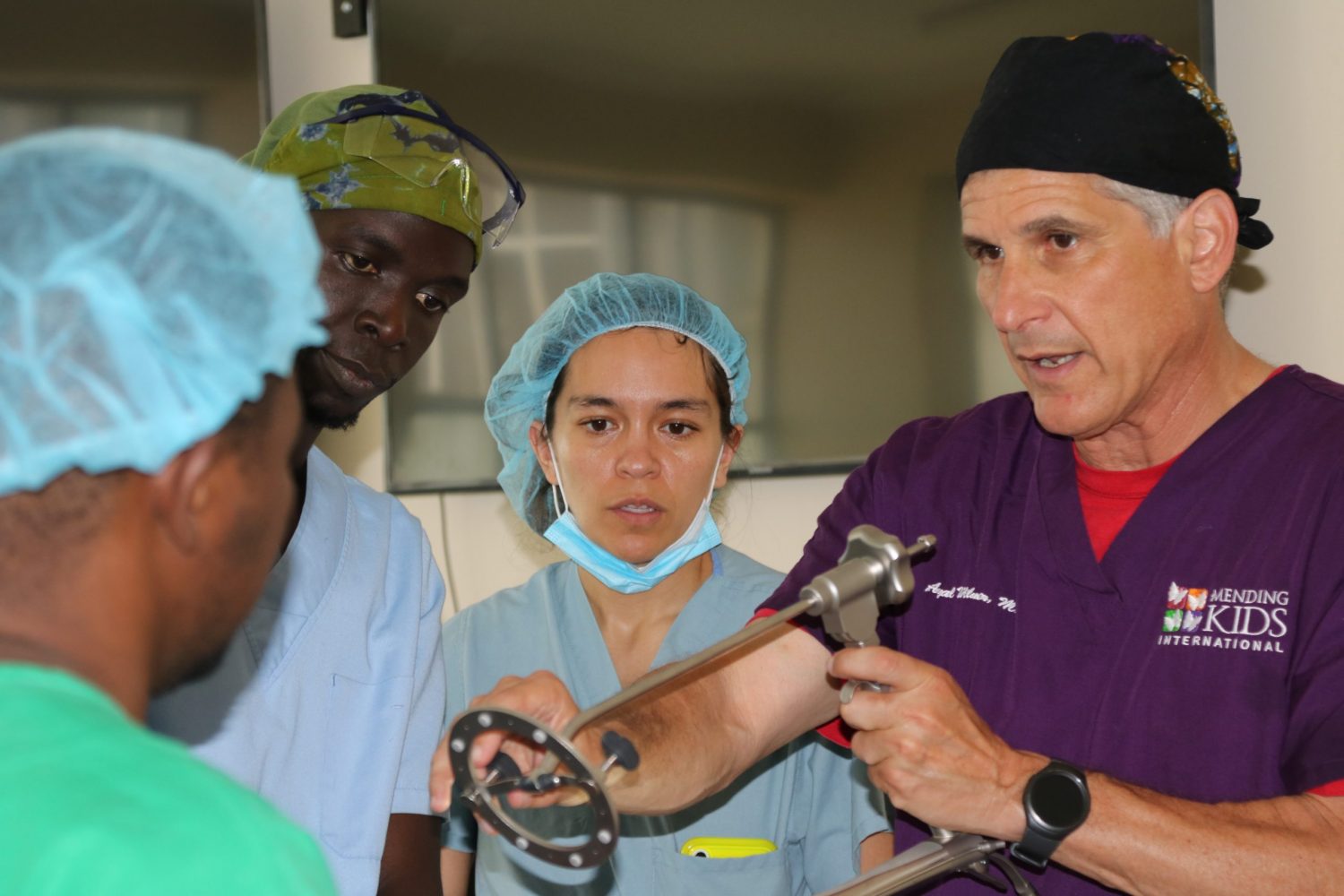
Young Judaean is ‘Mending Kids’ Around the World
Humans of Young Judaea Feature, by Ayal Willner
The values of Tikun Olam, the numerous lines in the Torah where we are enjoined to remember that we were once slaves in Egypt and to treat people well, along with the sayings of the prophets about taking care of each other, are all values that Young Judaea holds dear and imprints upon all who participate in the movement. While I have always been involved in giving back to my community, I decided to step up my game in 2013. As a Pediatric ENT doctor, I searched for a way to use my skills and experience (yup, I’m old enough to have a lot of that!), to find my corner of the world and fix it up as best I could.
I found Mending Kids, an organization whose goal is to provide medical care for children in need. We do this by sending medical missions and sometimes solo surgeons to places where care is difficult to get, and by arranging for patients to be sent to centers of excellence to get the care they need. This is very often on different continents from where the patients live (including a partnership with Israeli hospitals). We also bring education to physicians around the world via teleconference symposia on many topics. Mending Kids has a yearly Hometown Mission, where kids from the LA area and beyond can receive care that they would otherwise have not be able to receive.
With Mending Kids, I have travelled to Guatemala about fifteen times and to Tanzania three times. In Guatemala I have led fifteen member surgical teams where I’ve treated about 100 patients and performed over 100 surgical procedures in one week. Some cases are relatively straightforward, while others can be very complex requiring staged operations over many yearly missions to achieve the goal of helping one particular child. Each one of the kids and their families are always so grateful for the care they receive, and each member of our team is grateful to them for allowing us to make the world just a little closer to whole.

In Tanzania, where there are physicians are eager to learn, but where surgical equipment and training is in short supply, the Mending Kids team brings both. Mending Kids recently arranged for a $60,000 set of airway surgical instruments to be donated by the Karl Storz company to the Bugando Medical Center in Mwanza, Tanzania. Over the last two missions to Mwanza, we delivered the instrumentation as well as trained the residents and attending staff on proper use of them by performing surgical cases together. We are working to secure the necessary surgical instrumentation that will be required for our ultimate goal: to have a self-sustaining program where the surgeons we train will go on to create a pool of ENT physicians that serve the 15 million people served by Bugando Medical Center.
My years in Young Judaea from 7th grade chanich, 2 years at TY, Year Course ’79-’80, through being a madrich for the UNYS region and at TY, have all brought me lifelong friends, and helped me integrate Jewish Values into my very core. I am now a YJG board member; an opportunity to give back to such an important piece of myself, Young Judaea.
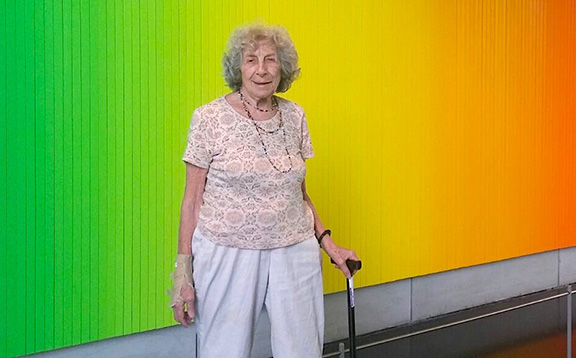
A Pioneer of YJ: Remembering Yocheved Herschlag Muffs
Reposted from the Jewish Women’s Archive by Diane M. Sharon.
After illegally immigrating to Palestine, Yocheved Herschlag Muffs began her career of Zionist activism managing a kibbutz kitchen and serving as a messenger during the War of Independence. In 1949 she returned to the United States and began working for Young Judaea, both as a group leader and writing and editing program guides for other leaders. Her life’s work was with the Anti–Defamation League from 1964 to 1993. Over the course of her 36 years at the ADL, Muffs challenged inaccurate depictions of Jews in dozens of major textbooks and reference books, helping to reshape attitudes towards Jews.
During much of her tenure (1964–1990) at the Anti-Defamation League (ADL), Judith Herschlag Muffs worked with major book publishers to correct inaccuracies in their accounts of Jews and Judaism. Stressing accuracy and objectivity, she succeeded in modifying dozens of textbooks and reference books. Today, inaccurate depictions of Jews have been largely eliminated from educational materials.
Muffs was born Judith Herschlag (Yocheved is her Hebrew name) on August 5, 1927, and grew up in Jamaica, Queens, the youngest of three children. Her father, Alexander Herschlag, and her uncle jointly owned a wholesale bread bakery. Her mother, May (Friedman) Herschlag, a homemaker, died when she was thirteen years old. She attended Hebrew school, which she loved, and where, when she was about eleven years old, Ha-Shomer ha-Dati, a religious kibbutz-oriented Zionist youth group, performed at a holiday celebration. She joined, became religious, and her life was changed.
In early 1946, she dropped out of New York University and went to the Ha-Shomer ha-Dati training farm in upstate New York, where she learned to cook, mix concrete, and milk cows. In 1947, when she was nineteen, she immigrated illegally to British-controlled Palestine, arriving by unconverted World War II troop carrier within a day of the famed Exodus ship, which carried over forty-five hundred survivors from Nazi Europe to Palestine.
She settled with her garin [aliyah group] at a kibbutz, where she eventually became kitchen manager, preparing meals on primus stoves and stretching meager food supplies. The kibbutz fought off several Arab attacks during the Israeli War of Independence in 1947–1949. Judith Herschlag served as a messenger during times of alert, learning to throw grenades and to shoot.
Shortly after her return to the United States in late 1949, she started to work for Young Judaea, an educational movement for Zionist youth. She first served as a group leader and then, beginning in 1954, as national program director. Eventually, she wrote five volumes of “Judaean Leaves,” a program guide for group leaders.
While she worked at Young Judaea, she returned to university studies, attending Queens and Brooklyn colleges. Completing her BA degree in sociology in 1952, she went on to do graduate work in sociology and anthropology at New York University.
In 1959 Muffs went to work for the United Synagogue Commission on Jewish Education, an organization that sets policy, develops courses and objectives, and prepares text materials to implement curricula for Jewish religious schools. There, she was editor of a variety of books and publications, including five volumes of Our Age, a biweekly for high school students.
While at the Anti-Defamation League, Muffs organized and participated in countless interfaith seminars and institutes at Christian seminaries and universities from the 1960s through the 1980s. In the late 1960s she co-produced the ADL–Catholic Archdiocese of New York twelve-part television series The Image of the Jew in Literature and Jews and Their Religion, featuring, among others, Elie Wiesel and Yitz Greenberg. Her study in the 1970s, “Jewish Textbooks on Jesus and Christianity,” appears in the Vatican publication Fifteen Years of Catholic-Jewish Dialogue (1988). In the 1980s she was on the task force of the National Conference of Catholic Bishops to develop and promote an accurate account of Jews and Judaism in Catholic education.
In 1970, she married Rabbi Yochanan Muffs, Distinguished Service Professor of Bible studies at the Jewish Theological Seminary of America. The couple had an apartment in Jerusalem, where they spent part of every year; Muffs had both American and Israeli citizenship.
Muffs was a consultant and a contributor to numerous books, films, and television documentaries on the Holocaust. Her The Holocaust in Books and Films: A Select and Annotated Bibliography has been published in three editions since its initial publication in 1978. She also co-wrote and acted in the ADL presentation of Women vs. the System, produced by ABC-TV.
Muffs considered her work at the ADL a continuation and expansion of her earlier commitments to Judaism, interfaith understanding, and civil rights. At the ADL she served as director of special projects, associate director of interreligious affairs, director of research and curriculum, and associate director of publications. She retired from the ADL in 1993 and continued to consult for them on major projects. In1994 she became a volunteer researcher at The Jewish Museum and was active in the Volunteer Association.
Throughout her entire professional career, Muffs strove to promote love of Judaism among Jewish young people and understanding of Judaism among those of other faiths.
Muffs died on December 31, 2021.
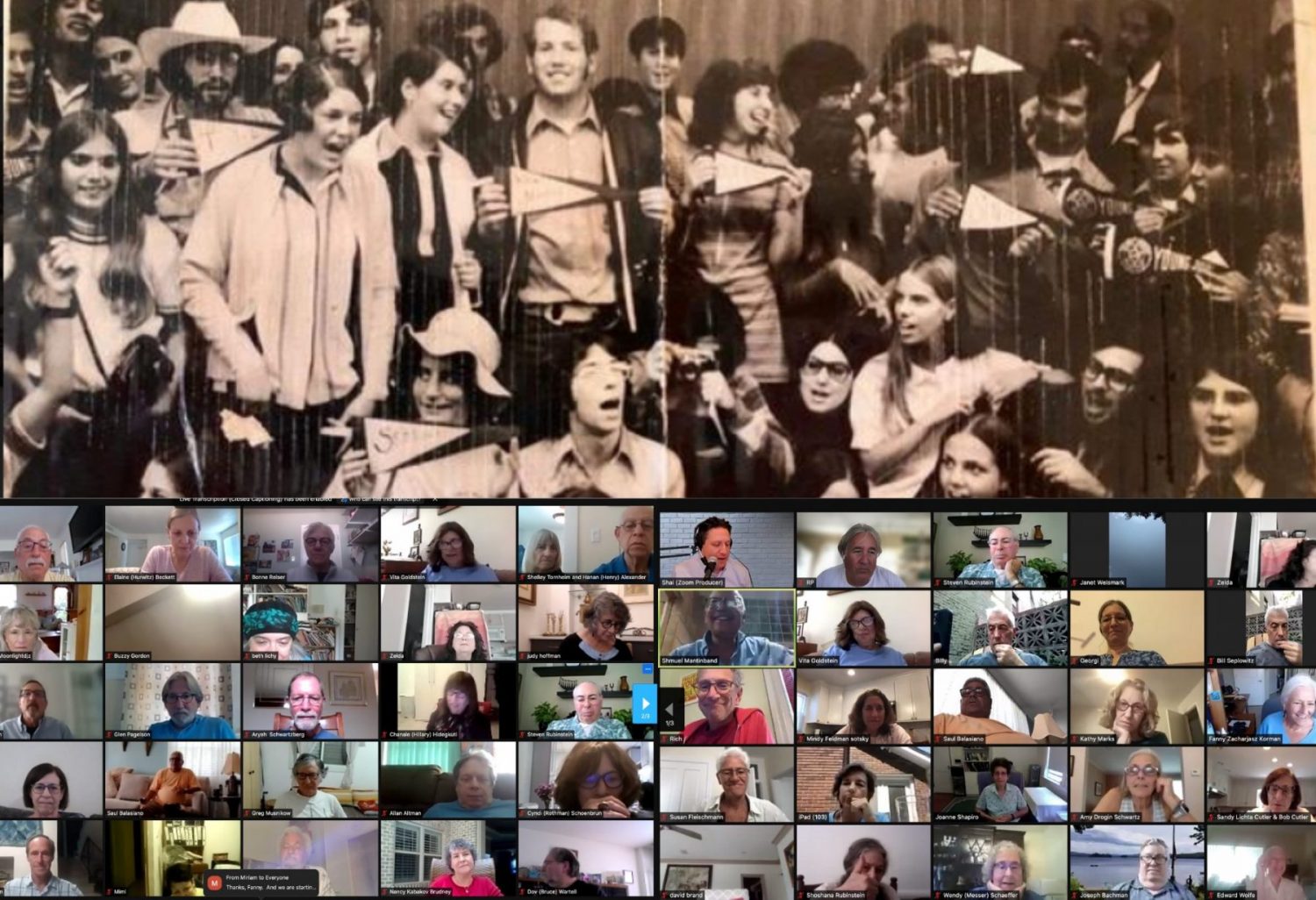
Year Course 1971 Reunites 50 Years Later
By Fanny Korman, Cyndi Schoenbrun, and Steven Rubinstein Year Course 1971
On September 22, 1971, over 70 Young Judaeans boarded an El Al charter plane with one carry-on and one large piece of luggage enroute to Israel to begin their Year Course program. They landed in Ben Gurion the next day, on September 23. Their luggage, shipped by boat, took over one month to reach them at Beit Riklis their new home on Mount Scopus, Jerusalem.
Almost exactly to the date by the Hebrew Calendar and 50 years later on September 12, 2021, 59 of our chaverim and madrichim living in 8 different time zones from California to Israel connected on Zoom to kick off a joyful celebration of this very special anniversary! Then and now, Young Judaea Year Course program is one of the top gap-year programs in Israel, run by the oldest Zionist youth movement in the United States.
The 1971-72 group was to be the last single track Year Course. It was a relatively peaceful and unique year, only four years since the 6-Day War and two years before the Yom Kippur War. Located on Mt Scopus, Beit Riklis was located across the road from the new campus being built for Hebrew University. Members of that Year Course had access to numerous locations that are only visited these days by a select few and under heavy guard. They were able to freely travel to and from Beit Riklis to the Old City through East Jerusalem; the trek by foot to the Kotel through the Arab quarter was a popular activity on Shabbat. For example, this lucky group was able to visit the Dome of the Rock and explore the site and visit the mosque without any concerns for their safety.
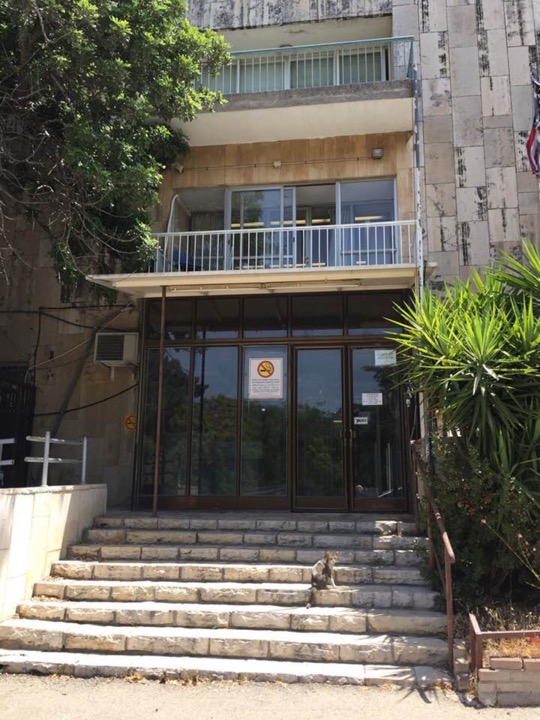
The celebration began with a message from Joe Wernick, who just celebrated his 80th birthday and was Year Course director at that time. He was followed by Adina Frydman, CEO of Young Judaea Global, who shared some warm remarks. Year Course participants were fortunate to be joined by madrichim Buzzy Gordon, Bonne Reiser and Alan Hoffman.
The event started with a slide show compiled from photos taken by and sent in by Year Course chevrei; roommates, friends, classmates, involved in educational activities, tiyulim, working on kibbutz and moshav, holiday celebrations and of course chofesh – life as it happened – during the 10-month period when this group resided in Israel, not as tourists but as students and members of a community.
A special commemorative segment paid tribute to the six chaverim that passed away sometime within the past 40 years. The connection to each other and the deceased chaverim was felt deeply as was demonstrated by the moving comments made following the tribute.
Everyone took part in breakout rooms, taking the opportunity to figure out where the last 50 years has gone and more importantly recalling the impact Year Course had on their lives then and now. The opportunity to schmooze informally was truly a highlight. It left this group of Judaeans clamoring for more time to reminisce, remember and reconnect.
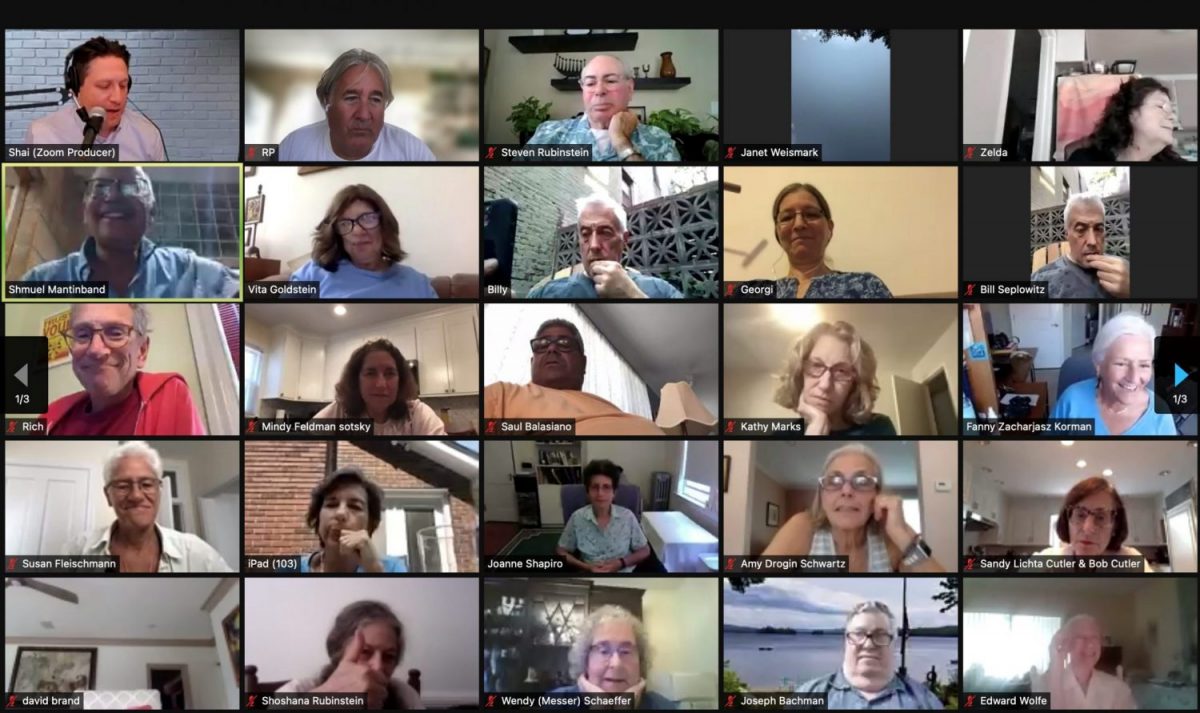
It took many volunteers and a big effort to make this event happen successfully. All who participated in the planning and creation of the various aspects for the celebration gave of their time with love and gratitude for the privilege of having attended Year Course 1971-72. Plans are now being made for follow up events to continue celebrating the 50th anniversary year throughout the next few months!
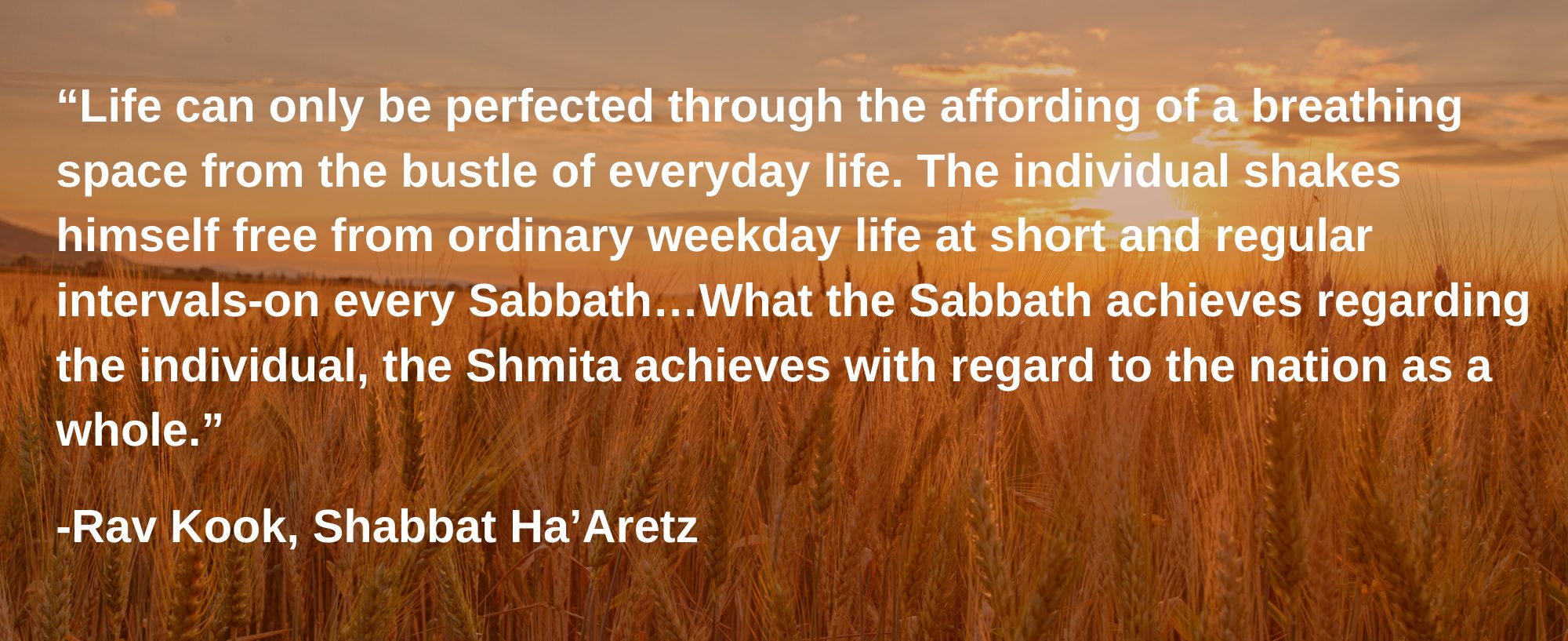
A Time to Recharge
Another unexpected outcome of the pandemic was a whirlwind year for Year Course 20-21. Israel tzevet quickly mobilized to find a way to safely usher in a record number of participants in the middle of a global health crisis. Once in Israel, the team dealt with multiple quarantine periods, a COVID-19 outbreak, a constantly changing itinerary for programming, and then an epic journey home in the midst of the conflict.
In year-round programming, everything had to go virtual including our Alternative Winter Break (AWB), Regional, and National Conventions. We further adapted to this most unusual summer by hosting virtual alumni events where we engaged over 1000 alumni and raised critical funds to stabilize and strengthen the organization
After a year of shifting to the virtual world, camp tzevet had to switch gears once again to reopen for summer 2021. Now the questions became, “How do we keep our campers safe?” and “How do we create a sense of normalcy for campers during an abnormal time?” Hours spent researching protocols, calling health professionals, ensuring there would be proper supplies, testing, and procedures ensued. And what an incredible summer of joy it turned out to be due to the many months of longing and the tireless efforts of our tzevet.
Young Judaea recognizes that although there is never an ideal time, there has come a time for rest.
As we usher in the Shmita, sabbatical year, this 5782, Young Judaea will join many other Jewish non-profit organizations in recognizing this important time to re-charge by giving our professional teams a mini-shmita, time off, between Yom Kippur and Simchat Torah. A time for tzevet to restore their energy, spirit, and unwavering passion for creating life-changing experiences for the future Jewish leaders of tomorrow. We hope this extra time away will allow all of us to regroup after a year of endless challenges.
To our incredibly devoted and hard-working tzevet, thank you for all you do!
To the community of alumni, supporters, and extended family, thank you for your unwavering support!
We hope you have found time to recharge and prepare for the year ahead.
Shana Tova and a G’mar Chatima Tovah.
